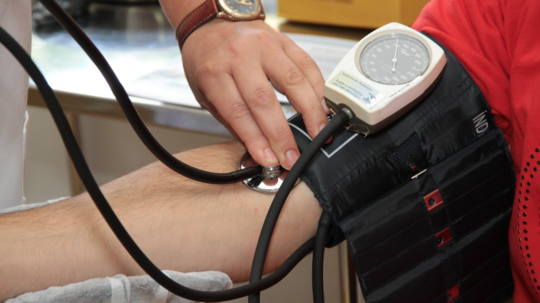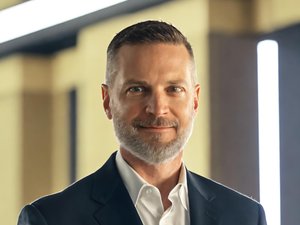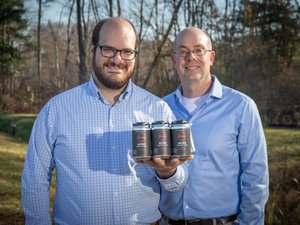
This article is part of a new series profiling University of Wisconsin alumni contributing to Wisconsin’s growing innovation economy.
We often hear about the inventions of brilliant university researchers that transform science or patient care and associated high-profile exits, such as the acquisition of Wisconsin’s Stratatech by Mallinckrodt. Receiving less attention are the technology transfer officers who are instrumental in driving the commercialization of these companies at the earliest stages.
Inventors often know they have a promising scientific discovery but lack the business skills needed to develop a marketable product. Laura Savatski (UW ‘03) helps such researchers at the BloodCenter of Wisconsin’s Blood Research Institute (BRI), a part of Versiti.
Savatski acts as a “scientific translator,” digesting scientific discoveries, identifying those that have commercial potential, and working to bring them to the public by seeking potential commercial partners.
Savatski is especially valuable because of her own successes with research commercialization as an entrepreneur. She and Dr. Kelly Henrickson founded Waukesha-based Prodesse, Inc., a biotech company that was later sold to Gen-Probe, Inc. in 2009. The team discovered a novel way to diagnose respiratory infections, taking a nasal swab and analyzing the sample using what was then a new technique called multiplex PCR.
Savatski notes that the approach to tech transfer is beginning to change. Technology transfer officers are increasingly turning to alternate sources of value creation for their institutions. Instead of simply focusing on “classic big wins” like the commercialization of new therapeutics and diagnostics, they are brainstorming ways to create more frequent, smaller wins.
In Wisconsin, this change has spawned events like the annual Mobile App Challenge. Savatski believes this shift has helped to further engage junior members of the institution, like students, and boost their creativity.
Another emerging trend is the shift towards creating startups within the institution where the discovery was made. BloodCenter had a record number of startups in 2017. Savatski hopes that the next startup is tied to a new safety breakthrough in cancer therapy that can be applied to CAR-T therapy.
CAR-T uses a patient’s own immune cells that have been manipulated to fight cancer more effectively. This safety improvement for CAR-T, discovered by BloodCenter scientist Subramaniam Malarkannan, Ph.D., addresses the undesirable inflammatory response known as cytokine release syndrome (CRS). Many initial and ongoing CAR-T trials were shut down due to patient deaths related to CRS and inflammation in the brain.
Researchers at the BRI have identified a unique mechanism to specifically control CRS. Rather than moving further development outside of the institution’s walls, with Savatski’s help, BloodCenter hopes to identify a CEO and business partner for the technology and to collaborate with them to bring the product to a Phase I clinical trial.
Wisconsin has strong research commercialization infrastructure to support the creation of these university spin-offs, like the recent National SBIR Conference in Milwaukee and the National Science Foundation’s I-Corps program that gives dedicated time and business lessons to academic entrepreneurs. Still, Savatski notes that improvements are needed.
A lot of technology transfer occurs outside of the typical university setting, particularly in Wisconsin due to its large manufacturing base. However, most funding mechanisms to support this work are only available to those at public universities. For nontraditional institutions making important discoveries, finding funding essential to the success of a new startup is even more challenging.
Creating additional funding sources for these institutions should help to enhance the development of research-based innovations in the state of Wisconsin and, ultimately, improve public health.
About the Author: Andy is a 5th-year MD/PhD Candidate at the Medical College of Wisconsin with interests in medicine, biomedical research, the humanities, and innovation. He is also a member of the Golden Angels Advisors, MCW’s Postdoc Industry Consulting Organization, and a Community Engagement Fellow at Bascom Ventures.








